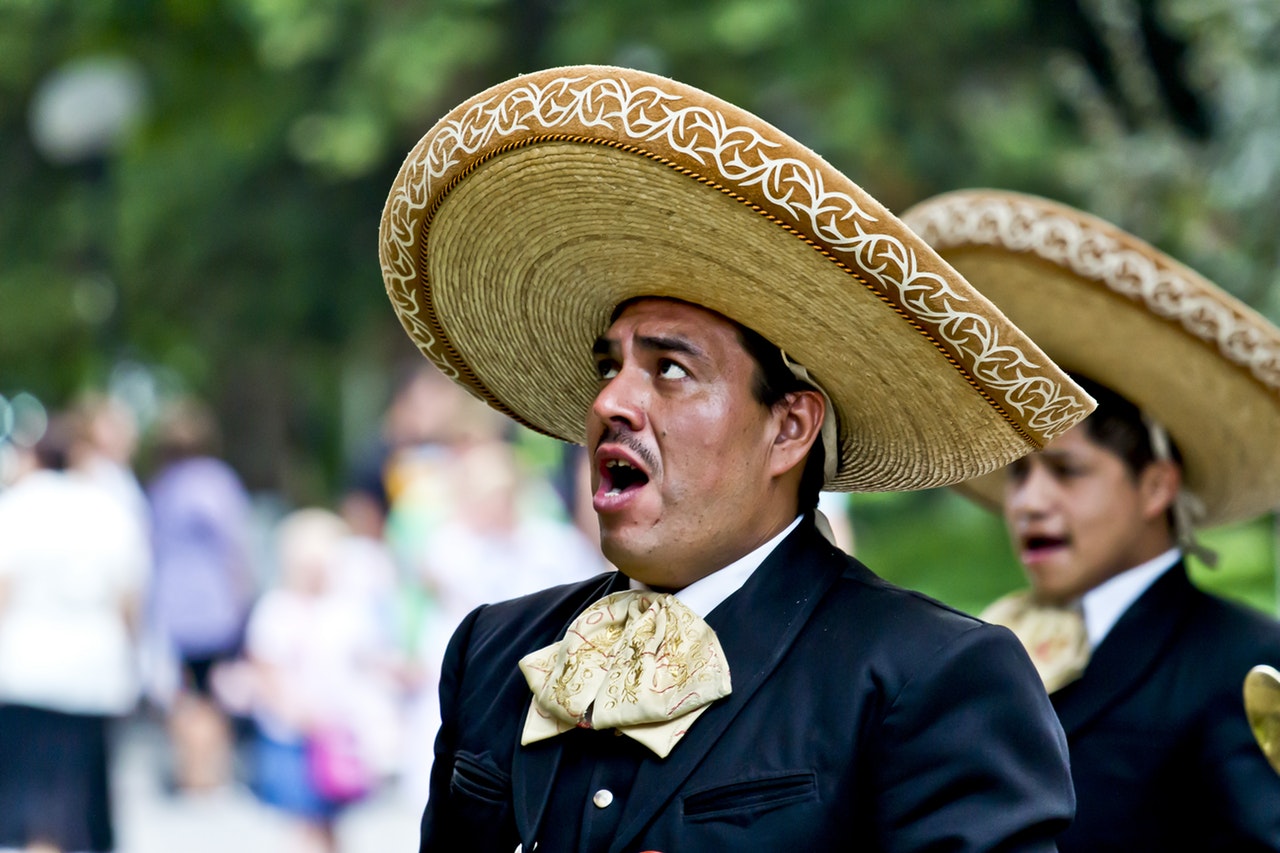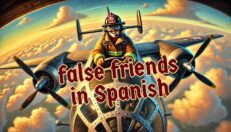Mexican Slang: 38 Words To Make You Sound Like A Local

Get our free email course, Shortcut to Conversational.
Have conversations faster, understand people when they speak fast, and other tested tips to learn faster.
More infoWhen traveling in Spanish speaking countries, one of the best ways to befriend a native Spanish speaker is to have some knowledge of their local slang, which is why today we’re going to teach you the very best Mexican slang.
Of course, it’s a good idea to first know some basic Spanish words, or even better, learn the most common Spanish phrases for traveling.
Once you cover these, you’ll want to make local friends and what better way to do so than to speak the local lingo.
Since our post on Colombia slang proved to be so popular, we figured that it was time to dedicate a post on teaching the most commonly used Mexican slang.
(Some of the following language is a little “colorful”, and so we advise the easily offended to stop reading right now)
What are Mexican slang words you need to know?
1. Güey
This word is at the forefront of Mexican slang. Similar to “dude” in English, “güey” is commonly used for friends or acquaintances, and in some unpleasant situations, refers to strangers in a sarcastic way. Pronounced like “whey” in English.
- Mira güey, ¿salimos hoy o que? – Hey dude, wanna go out today?
2. Neta
This is another one of those words that you will hear in movies, tv shows, or from some Mexican friends. It usually means “the truth”, but when used interrogatively, it’s understood as:
- ¿Neta? – For real?
You can also refer to someone great by saying:
- ¡Eres la neta! – You rock!
3. No manches
When a friend tells you about some amazing event, or something that you don’t know if it’s real or not, you would say No manches! (Really? or Are you kidding?).
You can also use ¡No mames! which means the same thing, but is a little more colourful (similar to damn!).
4. ¡Órale!
This word has many different purposes: amazement, approval, enthusiasm and even to complement orders.
- ¡Órale! ¿Y tu desde cuando trabajas tanto? – Wow, since when do you work so much?
5. ¡Aguas!
As odd as this expression may seem, it has no relation to water. This expression refers to being alert or aware of your surroundings.
- ¡Aguas! – Watch out!
6. Pinche
Typically used as an adjective to label something as ugly, terrible or of bad quality. Can also be used as a curse word to enhance an insult and its characteristics (the same way “fucking” in English is used.
- ¡Jajaja! pinche Ricardo, siempre sales con esas cosas – Hahahah, fucking Ricardo, you always come up with stuff like this
- Eres un pinche idiota, Ricardo – You’re a fucking idiot, Ricardo

Unsure what to learn next?
Download the exact curriculum that thousands of BaseLang students have used to become fluent in Spanish.
Download Guide Now!
7. Chido
Mexicans love to use “chido” to describe something cool, or with good vibes. It can be used with people, objects or situations.
- Esta bien chido ese regalo, gracias wey – That gift is really cool, thanks man
8. No Hay Bronca
Let’s start with “bronca”, commonly used to refer to a problem or discomfort. So as you can imagine “no hay bronca”, means that there is no problem – everything is fine.
- Claro, yo te puedo prestar algo de dinero, no hay bronca – Sure, I can lend you some money, no problem
9. Chavo or Chava
The most commonly used words to describe children, adolescents and young people in general. Similar to “kid” in English.
- El chavo sigue en el colegio, debería buscarlo – The boy is still in school, I should pick him up
10. Naco
Mexican slang for someone with a tacky, or poor attitude, and is considered less sophisticated than your regular member of society. Most of the time, a naco acts unpleasantly, is not well-educated and uses certain colorful slang. Close equivalent to “ghetto” in English.
- Naaah, te ves muy naco con eso, mejor cambiate – Nah, you look really trashy on that, go change
11. Fresa
You probably recognize this word as “strawberry”, but in Mexican slang, “fresa” is used to describe a person who is a snob, stuck-up and basically, thinks that they are better than everyone else. They’ll likely speak with a distinct accent – which may or may not be fake.
- Sabes que no me gusta salir con hombres como él, es demasiado fresa – You know I don’t like going out with men like him, he’s way too stuck up
12. Chicano
Natives use this word to describe people of Mexican origin born in the United States, or people who were born in Mexico but emigrated to the US at an early age.
- Hay una población bastante grande de Chicanos en Los Angeles – There is a very important Chicano population in Los Angeles
13. Cholo
Commonly heard in the southwest of the United States, “cholo” is a somewhat loosely defined term, but it generally refers to Mexican gangsters, with a very specific look – big white shirts, black baggy shorts, shaved heads, religious black ink tattoos, black shades, etc.
- Tengo algunos primos cholos, pero prefiero no meterme en eso – I have a few cholo cousins, but I’d rather not get involved with that
14. Metiche
That person who always has his/her nose in other people’s business. Not guaranteed to spread rumors, but still likes to keep tabs on everyone’s business.
- Hay demasiados metiches en mi trabajo, no los soporto – There are too many nosy people on my job, I can’t stand them
15. Tocayo
Nickname given to anyone who shares your first name.
- Ahí va el tocayo – There goes my tocayo
16. Prieto
While this may seem a little racist to an English speaker, in Mexico this word is seen as non-offensive slang to describe someone with darker skin.
- ¿Recuerdas quién es Daniel? Mi amigo prieto, estuvo acá el otro día – Remember who Daniel is? My black friend, he was there the other day
17. Vieja
Although this directly translates to “old lady”, in Spanish and particularly Mexican slang, this word is used as an affectionate word for your mom.
- Tengo que visitar a la vieja de vez en cuando, y darle algún regalito – I have to visit my mother from time to time, and give her some little present
18. Padre
Similarly, this literally translates as “father”, but in Mexican slang means cool. You’ll hear common phrases such as “que padre!” (“How cool!”) or ‘más padre’ (‘very cool’). Just like “chido”, it can be used when talking about people, things or situations.
- Está bien padre ese juego, ¿como se llama? – That videogame looks really cool, how’s it called?
19. Chela
Chelas, or cheves are beers, and the word comes from a beer cocktail (michelada) that mixes beer with lime, chili and tomato juice.
- Dame dos chelas para mi y mi compadre – Give me two chelas for me and my compadre.
20. Pomo
A rather short name for a bottle of any liquor that you might find, from vodka to some fine tequila.
- Las chelas no van a alcanzar para todo el mundo, hay que abrir un pomo – Beers aren’t going to be enough for everyone, we have to open a bottle
21. Malacopa
The lightweight person who gets drunk extremely easy or extremely fast – we all know someone like that.
- Creo que el pomo no hacía falta, estos son muy malacopa – I think the bottle wasn’t even necessary, these guys are extreme lightweights
22. Crudo
The imminent future of a “malacopa” is to have a hangover.
- Esta mañana amaneci crudo – I woke up with a hangover today
23. Cantina
Sounds similar to a canteen, and they serve a similar purpose, since this term means “bar” for Mexican folk.
(A naco will probably describe a nightclub as “antros”)
- Hoy no tengo ganas de ir a la cantina, vayan ustedes – I don’t want to go to the bar tonight, but you guys can go
24. Pedo
This word has 3 uses a) a fart b) being buzzed/drunk c) being a problem.
- No pensé que fuesen a volver tan pedos wey – I didn’t think you’d come home so drunk, man.
25. Chamba
A difficult and demanding job, or an unpleasant situation i.e. something you don’t want to get stuck in for too long.
- Mañana tengo que volver a mi chamba wey, o me despiden – I have to go back to my job tomorrow man, or I’ll get fired
26. Changarro
The name given to small, wholesome family businesses – like the bodega (mom and pop store) on the corner of the street.
- Ve al changarro ese y ve si tienen algunos dulces – Go to the store and see if they have any kind of candy
27. Chafa
Something that is of very low quality, disappointing or prone to causing frustration and have you screaming “¡Que chafa!” which means “what crap!”.
- Esa camisa está chafa – This t-shirt is bad quality (or fake)
28. Varos
Slang word for money, capable of replacing the word “pesos” since it can hold a numerical value, like “bucks”.
- Me pagaron esta semana, puedo poner unos cuantos varos más para la pizza – I got paid this week, I can help with a few more bucks for the pizza
29. Refresco
Commonly used slang term for sodas of any kind.
- ¿Quieres beber refresco o te sirvo algo más? – Do you want to drink some soda or do you want me to serve you something else?
30. Paro
This simply means favor, and will replace the word in most occasions.
- ¿Me puedes hacer un paro y recordarme eso? – Can you do me a favor and remind me of that?
31. Gacho
This is a substitute for “feo” (ugly), though both words are used in a much wider sense than for physical ugliness i.e. just general badness.
- No seas gacho, déjalos ir al parque – Don’t be so boring, let them go to the park
32. Jalada
A word for something that is completely unbelievable or overdone, like “The Fast and Furious” movie franchise.
- No puede ser, que jalada toda esa historia, ¿como quieres que te crea? – That’s a ridiculous story, how do you want anyone to believe you?
33. Chorro
When you have a stream of something, meaning you have large quantities of it (like “The Fast and Furious” boxset collection).
- Tenemos un chorro de películas por ver esta vacaciones, deberíamos comenzar – We have a ton of movies to watch on vacation, we should get started
34. Ratero
In Mexico, “ratero” is used instead of “ladrón”. Both words mean “thief”.
- Pues el teléfono me lo robó un ratero, así que no tengo – A thief robbed me off of my phone, so i don’t have one
25. Vocho
Nickname for the old Volkswagen Beetle, a car you will see a lot in Mexico.
- ¿Por qué hay tantos vochos en la capital? – Why are there so many beetles in the capital city?
36. Chamarra
In Mexico, this word is slang for jacket or coat, and acts as a replacement for “chaqueta” which is used in every other Spanish speaking country.
That’s because in some parts of Mexico, “chaqueta” is a slang term for masturbation or touching yourself.
So if you want to avoid an awkward (and possibly funny moment, the next time you go to buy a “jacket” in Mexico, it’s best to use the slang term.
- ¿Me prestas tu chamarra? – Can I have your jacket for a minute?
37. Chanclas
A word for sandals and flip-flops, a common sight everywhere in the country.
- Deberías ponerte algo mejor que esas chanclas para salir – You should put on something better than those flip-flops to go out
38. Camión
A slang word for both formal and informal route buses, even though it means “truck” in the rest of Latin America.
- Apúrate que no vamos a alcanzar el camión – Hurry up or we won’t catch the bus
________________________
By learning these Mexican slang terms, you’ll have a better chance of endearing yourself to the locals – or at the very least make a Spanish speaker laugh.
For some slightly more NSFW words, make sure to read our ultimate guide to Spanish curse words here.



